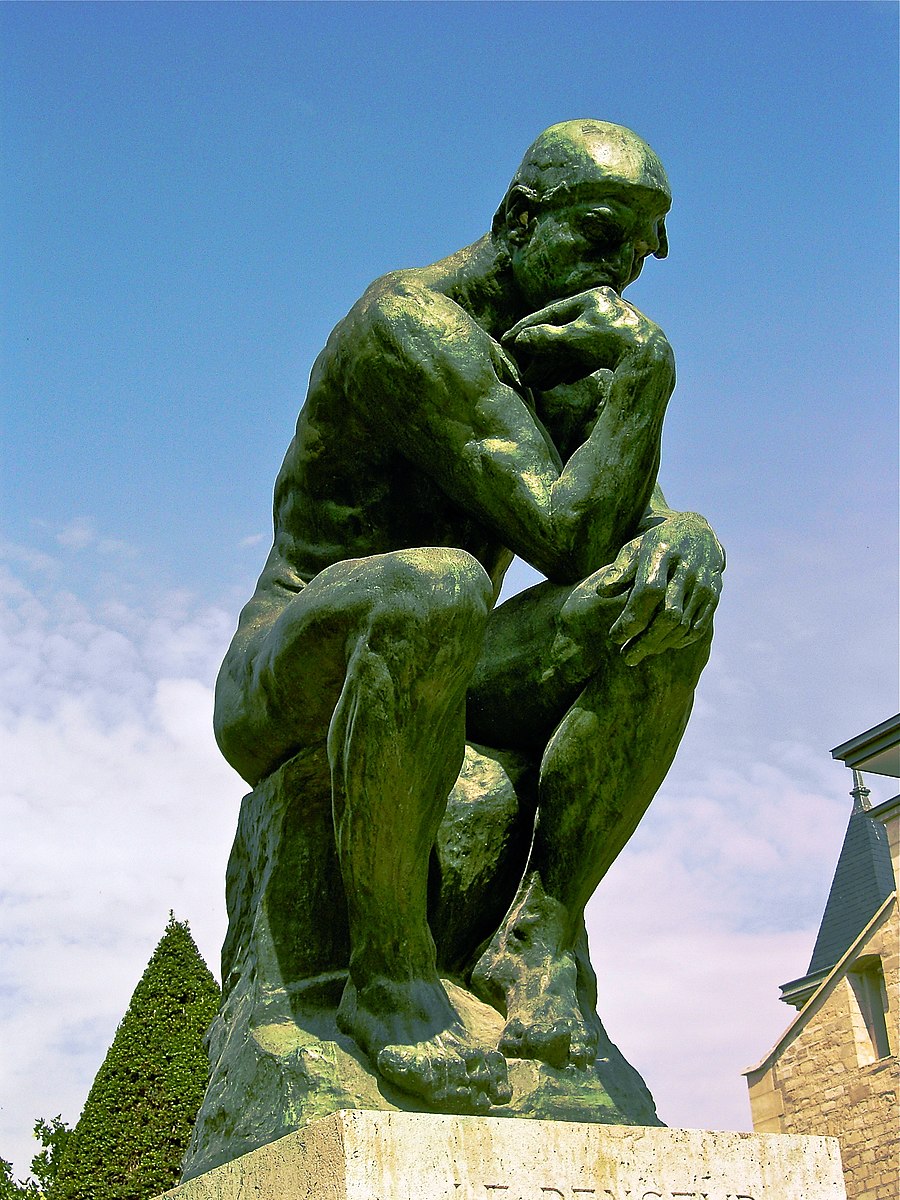And I couldn't find anything - so here are some thoughts in case you have just Googled the self-same thing.
All too often, my time frazzles away, consumed by the day job. You probably know all about this.
If you aren't writing enough, is it because you don't have time, because you don't think you have time, or because you can't think?
 |
| The Thinker https://commons.wikimedia.org/wiki/File:The_Thinker,_Rodin.jpg |
The modern age is full of manufactured distractions, the aim seeming to be to not-think, and to sustain the habit of not-thinking for a lifetime.
Often, the advice to new writers is to write, but what is the point of writing if your mind is a snarl-pit of the small stuff?
But then again, if you write, honestly, without inhibition, for long enough, thinking will follow.
So.
Stop starting at the internet.
Turn off the computer. (When you have finished reading this blog post, I mean.)
Look out of the window.
Or stare at the ceiling.
Do this for five minutes.
Then write for five minutes.
By hand, with a pen, like some ancient scribe.
Do it for a week.
Then see how you feel.
I will do the same and report back in seven days. (This is my very busiest time at work so an excellent time for such a challenge.)
